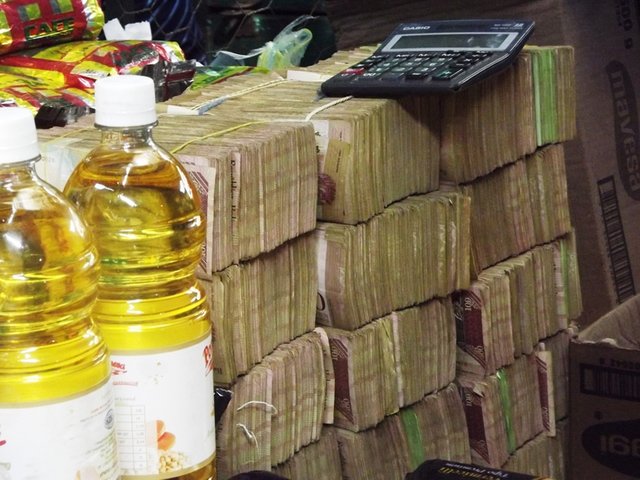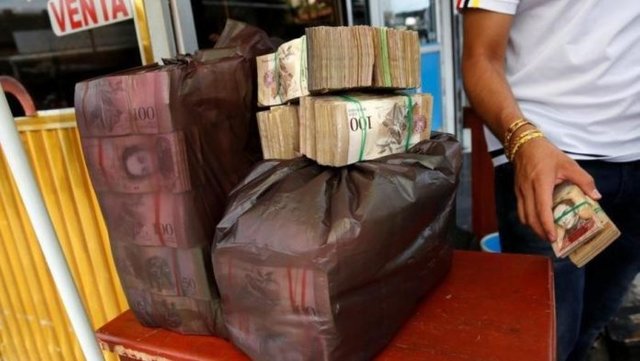Unexpected Realitites About Living in Venezuela, Part 4: Cash is on Sale
Cash is sold for more than its worth

One of the better known things about Venezuela is that there is a shortage of, well, everything. Food, medicines, and even things as basic as toothpaste and toilet paper are usually missing from most stores or supermarkets. The reasons for this are many and would bore you more than watching paraplegics play golf, but products aren’t the only thing that’s scarce. Cash is also hard to come by.
You’d think that with the scarcity of most products, the one thing we have would be money to buy the few things we do find, but hyperinflation has the nasty habit of fucking everything up worse than you did with the ex you still love. You can literally carry bags full of money and it wouldn’t be enough to buy a kilogram of powdered milk, and the price of things like car tires or furniture has more zeroes than the saga of A Song of Ice and Fire written in binary. To try to fix this, the government released a series of new bank notes a year ago, and more recently a Bs. 100.000 bill (now worth less than $0.20). Unsurprisingly, this didn’t exactly stop the inflation, as the government promised it would. We´ve learned by now that they aren’t too trustworthy.
As it continued to grow faster than a prepubescent boy’s excitement while he´s downloading his first porn video, more and more bills were required to buy things. Thus, more are needed, the Central Bank prints more, which worsens the inflation and causes the prices to go up, and so more cash is needed, and more has to be printed. This cycle of economic screw ups has made everyone resort to debit and credit cards for most transactions, but cash is still needed, and not only for sniffing coke (also, dealers don’t take credit cards); taxis and public transport only accept paper money, and so do many street vendors. Most banks have a daily withdraw limit of Bs. 20.000 to 40.000 (only enough to pay around 6 bus rides) and ATM’s usually only give 6000Bs per day. Thus, people have noticed the demand, and a new type of business was born.

Avances, or cash advances, basically consists of selling cash and making a profit by charging a set percentage more. For example, if you were to buy Bs. 200.000 of cash, normally you would be charged around 60% to 90% more, or Bs. 320.000 – 380.000, to be transferred or paid by card to the one giving you the cash. Of course, the percentage depends on the benevolence of the one making the advance, and it has been seen to get as high as 100%, 130%, and even 200% of the amount you’re buying. To make this amounts in cash, a common practice is to sell whatever products for less than their worth, but only take paper money, and making profits only on selling the bills. It can be seen as a horrible way to take advantage of the needs of the people, but at least the concept of supply and demand has never been clearer.